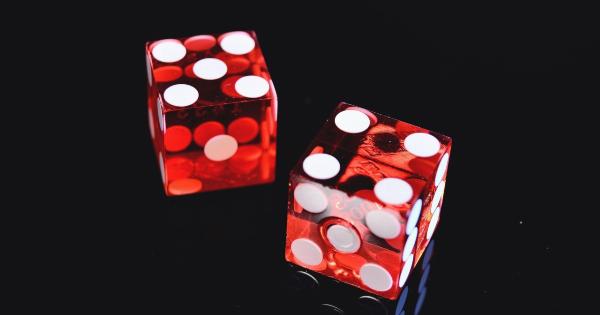Over the years, there has been a growing concern about the relationship between gambling addiction and criminal behavior.
Many studies have shown that individuals with gambling addiction are more likely to engage in criminal activities compared to non-gamblers. In this article, we will explore the correlation between gambling addiction and criminal behavior.
What is Gambling Addiction?
Gambling addiction, also known as pathological gambling, is a disorder that occurs when an individual cannot control their gambling habits.
They continue to gamble despite the negative consequences, such as financial trouble, relationship problems, and legal issues. Pathological gambling is classified as a behavioral addiction, which can have a severe impact on an individual’s mental and physical health.
The Link Between Gambling Addiction and Criminal Behavior
There is a strong correlation between gambling addiction and criminal behavior. A study conducted by the University of Cambridge found that gambling addiction increases the risk of engaging in criminal activities by three times.
The study also found that individuals with gambling addiction were more likely to be involved in white-collar crimes, such as fraud and embezzlement.
Another study conducted by the University of Iowa found that individuals with gambling addiction were more likely to engage in violent behavior, such as domestic violence, physical assaults, and robbery.
The study also found that gambling addiction was linked to substance abuse and mental health disorders.
The Role of Impulsivity in Gambling Addiction and Criminal Behavior
Impulsivity is a personality trait that is often associated with gambling addiction and criminal behavior. Individuals with gambling addiction tend to have a high level of impulsivity, which can lead to impulsive and risky decision-making.
This impulsivity can also lead to criminal behavior, as individuals may engage in illegal activities to support their gambling habits.
A study conducted by the University of Missouri found that individuals with gambling addiction have higher levels of impulsivity compared to non-gamblers.
The study also found that individuals with gambling addiction were more likely to engage in criminal activities, such as theft and fraud.
The Impact of Gambling Addiction on Society
Gambling addiction not only affects the individual, but it also has a significant impact on society as a whole.
Individuals with gambling addiction often engage in criminal activities to support their gambling habits, which can lead to increased crime rates in communities. This can also lead to a strain on law enforcement and social services, as they are responsible for dealing with the consequences of gambling addiction.
Gambling addiction can also have a significant financial impact on society. Individuals with gambling addiction often accumulate large debts, file for bankruptcy, and require public assistance.
This can put a strain on the economy, as resources are redirected to support these individuals and their families.
The Importance of Prevention and Treatment
Prevention and treatment are critical in addressing the issue of gambling addiction and criminal behavior. Early intervention is essential in identifying individuals with gambling addiction and offering them the appropriate treatment.
This can help prevent individuals from engaging in criminal activities and reduce the financial burden on society.
Treatment options for gambling addiction include cognitive-behavioral therapy, medication, and support groups. These treatments can help individuals overcome their addiction and improve their mental and physical health.
It can also reduce the likelihood of engaging in criminal behavior and improve their relationships with family and friends.
Conclusion
Gambling addiction and criminal behavior are closely linked, with studies showing that individuals with gambling addiction are more likely to engage in criminal activities.
The link between impulsivity and gambling addiction further increases the risk of engaging in criminal behavior. Prevention and treatment are critical in addressing the issue, as it can have a significant impact on society as a whole.






















